SparkFun Rotary Switch Potentiometer Breakout
The SparkFun Rotary Switch Potentiometer Breakout is a small board the allows you to add resistors to a 10-position rotary switch, turning it into a potentiometer with 10 discrete steps. Multiple applications require potentiometers that are hard to find due to specific resistance values or custom tapers, the Rotary Switch Potentiometer board allows you to populate your own resistors to help match situations where ordinary parts aren’t available or suitable. Specific resistors can also be used in situations where you want distinct steps or selections, such as being able to consistently select to a value.
Each Rotary Switch Potentiometer Breakout provides you with nine spots on the board for resistors (positions 1 through 9). These resistors are bent like a hair pin, and soldered in place “standing up.” On the opposite side of the breakout you will find three pins to attach leads or a connector which include, CCW (Counterclockwise end of resistor string), W (Wiper), and CW (Clockwise end of resistor string).
Note: A 10-position rotary switch is NOT included with this breakout. Check the Recommended Products section below for the correct switch.
- Schematic
- Eagle Files
- Hookup Guide
- GitHub (Example Code & Design Files)
- Product Video
SparkFun Rotary Switch Potentiometer Breakout Product Help and Resources
Rotary Switch Potentiometer Hookup Guide
April 30, 2015
How to use the Rotary Switch Potentiometer breakout board, with some sample applications.
Core Skill: Soldering
This skill defines how difficult the soldering is on a particular product. It might be a couple simple solder joints, or require special reflow tools.
Skill Level: Noob - Some basic soldering is required, but it is limited to a just a few pins, basic through-hole soldering, and couple (if any) polarized components. A basic soldering iron is all you should need.
See all skill levels
Comments
Looking for answers to technical questions?
We welcome your comments and suggestions below. However, if you are looking for solutions to technical questions please see our Technical Assistance page.
Customer Reviews
4.8 out of 5
Based on 6 ratings:
It's a breakout board (duh)
... thus, it's only function is to make the rotary switch easier to install. Which it does. I suppose if I had done a million such installs with and without I could say something more enlightening. But I do like it.
REALLY GREAT
Needed it to be reliable and it was.
Great Board and Simple to assemble
Loved it!!!. And thanks for the easy to use math formula calculation. I would have been many hours figuring out a formula vs an IF then ELSE or case statement. Good work SPARKFUN
Now if only I could solder better life would be good.
Very handy!
The rotary switch fits perfectly onto the breakout panel. With it, it is so much easier to hook up the connections. (Without it, soldering would be quite painful.)

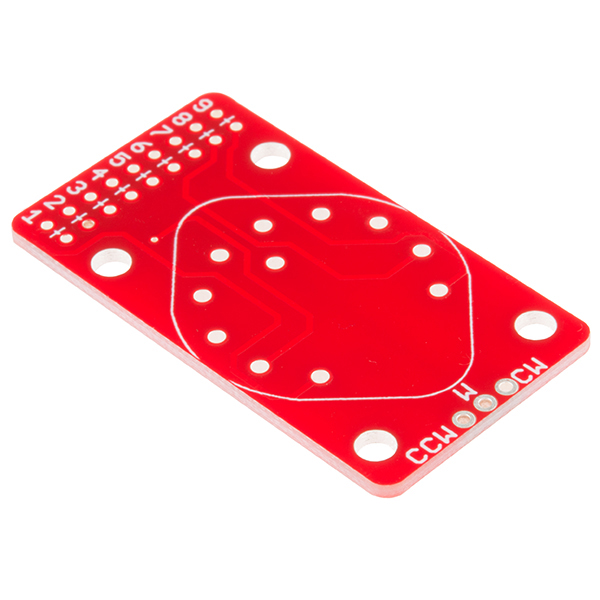
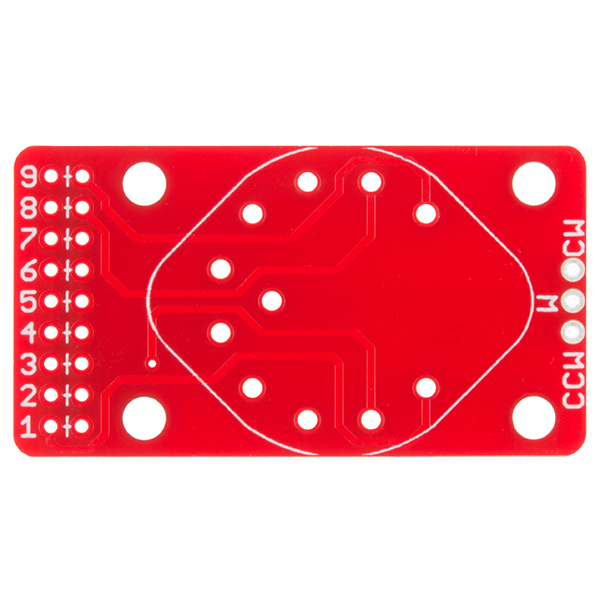
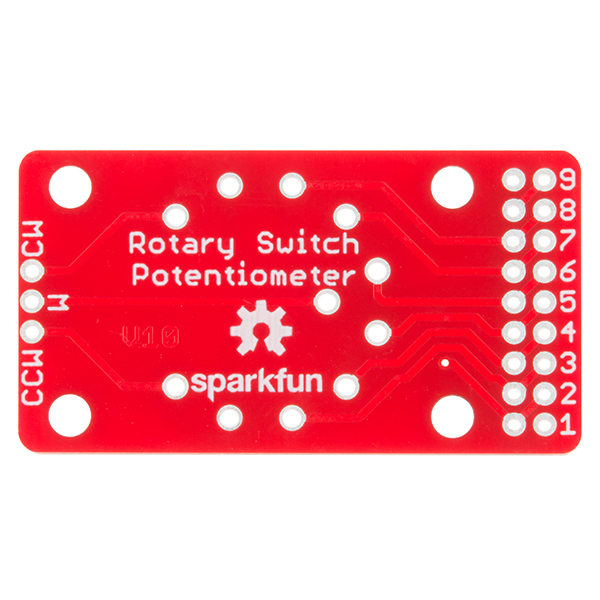
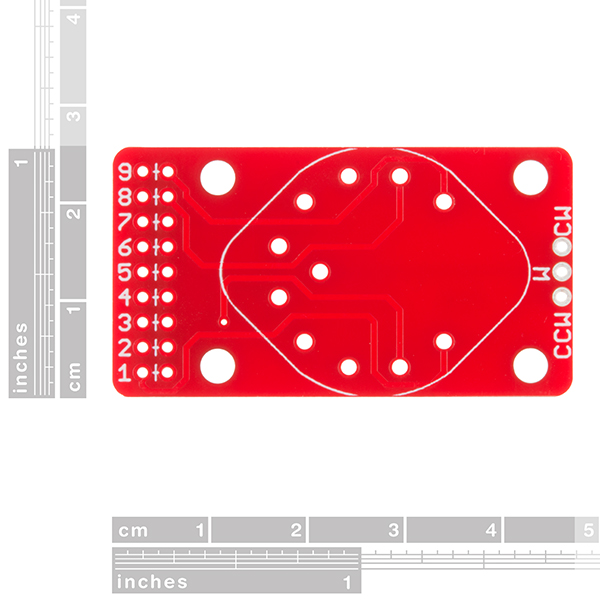
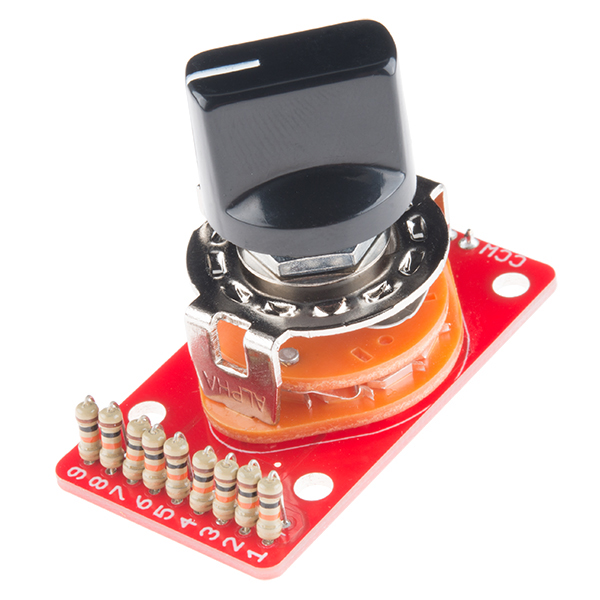
Ordinary "BBM" (break before make) switches are fine for signal selection, but are horrible for applications of attenuation - causing problems of broken feedback loops, severe audio clicks, etc. Do you offer "MBB" (make before break) rotary switches to use this board as an attenuator rather than selector?
What's the reason for the resistors to be standing up? There us surely room for them to be flat. Is there an advantage for them to he standing up?